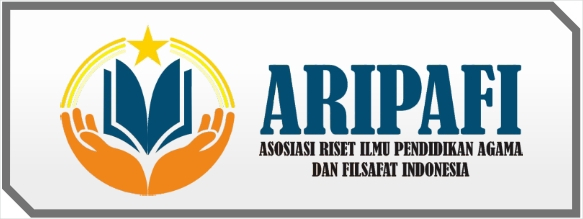Signifikansi Guru Pak Dalam Meningkatkan Kualitas Iman Dan Moralitas Peserta Didik Di Era Postmodernisme
DOI:
https://doi.org/10.55606/sinarkasih.v1i3.183Keywords:
Christian Education, Postmodernisme, Children.Abstract
One important theme that is rarely discussed is the service towards children. In community life, children are often neglected and deemed unimportant in certain contexts. Children have the smallest place in the social order of life. This is also experienced by children within the Christian community. They are only seen as the future of the church, leading to their current existence being often ignored. This should certainly be a matter of concern for all parties, including parents, pastors, and even Christian teachers or educators. The challenges faced by children in the postmodern era have become increasingly complex. They will confront a reality that perceives no absolute truth, as all truths are considered relative. Therefore, the core focus of this paper is to discuss the steps or roles that Christian religious education teachers take in preparing children, especially Christian children, to face this postmodern era. In the discussion, the author presents various challenges and needs of children in the postmodern era, as well as what a Christian educator should do. The method used by the author in this article is a literary method with a descriptive approach. The author gathers various data sources related to the discussed topic and analyzes them to find a comprehensive and accurate understanding. Through this research, it is found that a Christian religious education teacher is responsible for nurturing and guiding children to know Christ, so that they have faith, acknowledge Jesus as Lord and Savior, and experience a renewal of life.
References
Arifianto, Yonatan Alex. “PERAN GURU PENDIDIKAN AGAMA KRISTEN DALAM PENDIDIKAN ETIS-TEOLOGIS MENGATASI DEKADENSI MORAL DI TENGAH ERA DISRUPSI.” REGULA FIDEI: Jurnal Pendidikan Agama Kristen 6, no. 1 (2021): 45–59. http://christianeducation.id/e-journal/index.php/regulafidei/article/view/84.
Arroisi, Jarman, dan Syamsul Badi’. “Konsep Harga Diri: Studi Komparasi Perspektif Psikologi Modern dan Islam.” Psikologika: Jurnal Pemikiran dan Penelitian Psikologi 27, no. 1 (2022): 89–106.
Cahyo, Pujo S. N. “Cultural Studies : Perlintasan Paradigmatik dalam Ilmu Sosial.” KOMUNIKATIF :Jurnal Ilmiah Komunikasi 3, no. 01 (2014): 19–35.
Emiyati, Ayang. “Mendisiplin Anak Menurut Prinsip Kristen.” Evangelikal: Jurnal Teologi Injili dan Pembinaan Warga Jemaat 2, no. 2 (2018): 147–156.
Febriaman Lalaziduhu Harefa. “Spiritualitas Kristen Di Era Postmodern.” Manna Rafflesia 1, no. Oktober (2019): 1–23.
Fitriyah, Nurul Alami, Maria Fudji Hastuti, dan Parjo. “Analisa Faktor-Faktor Yang Mempengaruhi Perawat Dalam Pemenuhan Kebutuhan Spiritual Pada Pasien Rawat Inap Di Rumah Sakit Anton Soedjarwo Pontianak, Pontianak, Kalimantan Barat Tahun 2016.” Jurnal ProNers 3, no. 1 (2016): 1–9.
Idris, I, dan J K B Wardhani. “Peningkatan Psychological Well Being Melalui Penguatan Karakter Religius Kepada Masyarakat.” … Ummah: Journal of Community Service … 1, no. 1 (2022): 1–24. https://e-journal.ikhac.ac.id/index.php/khodimulummah/article/view/2257%0Ahttps://e-journal.ikhac.ac.id/index.php/khodimulummah/article/download/2257/898.
Indra Gunawan. “Hubungan Sebab Akibat Ungkapan Pahlawan Tanpa Tanda Jasa Terhadap Identitas Dan Kesejahteraan Guru Di Indonesia.” PEDAGOGIA : Jurnal Ilmu Pendidikan 16, no. 2 (2018): 123–130.
Irianto, Agus Maladi. “Kemiskinan dan post-modernisme kebudayaan.” Humanika 17, no. 01 (1990): 51–61.
Kalis Stevanus. “Kesadaran Akan Allah Melalui Penderitaan Berdasarkan Ayub 1-2.” Dunamis: Jurnal Teologi dan Pendidikan Kristiani 3, no. 2 (2019): 24.
Lupi Yudhaningrum; Aulia Hanifah. “Hubungan Antara Sense of Humor Dan Burnout Pada Guru Sd Di Jakarta Timur.” JPPP : Jurnal Penelitian dan Pengukuran Psikologi 8, no. 2 (2019): 69–75.
Made Nopem Supriadi. “Tinjauan Teologis Terhadap Postmodernisme dan Implikasinya Bagi Iman Kristen.” Manna Rafflesia 6, no. 2 (2020): 112–134.
Moa, Antonius. “Keluarga Yang Rapuh: Mendidik Moral Anak Di Dalam Budaya Postmodernisme.” Logos: Jurnal Publikasi 12, no. 02 (2020): 19–37.
Rahma, Tsania, Yehezkiel Lemuel, Debby Fitriana, Tiara Rizki Annesha Fanani, dan Rosa De Lima Gita Sekarjati. “Intolerance in the Flow of Information in the Era of Globalization: How to Approach the Moral Values of Pancasila and the Constitution?” Indonesian Journal of Pancasila and Global Constitutionalism 1, no. 1 (2022): 33–118.
Riandini, Seffia. “Pengaruh Pola Pengasuhan Dengan Perkembangan Komunikasi Anak Autis Kepada Orang Tua.” Majority 4, no. 8 (2015): 99–106.
Rotua Samosir. “Guru Pendidikan Agama Kriten Yang Profesional.” PIONIR: Lembaga Penelitian dan Pengabdian Masyarakat 5, no. 3 (2019): 64–68.
Sipayung, Zenriahman, dan Hotmaulina Sihotang. “Peranan Belajar Behaviorisme dalam Hubungannya dengan Teknologi Pendidikan Serta Implikasinya dalam Pembelajaran.” Edukatif : Jurnal Ilmu Pendidikan 4, no. 5 (2022): 7129–7138.
Tambunan, Fernando. “Karakter Kepemimpinan Kristen Sebagai Jawaban Terhadap Krisis Kepemimpinan Masa Kini.” ILLUMINATE: Jurnal Teologi dan Pendidikan Kristiani 1, no. 1 (2018): 81–104.
Zaluchu, S. E. “Strategi Penelitian Kualitatif dan Kuantitatif Di Dalam Penelitian Agama. .” Evangelikal: Jurnal Teologi Injili dan Pembinaan Warga Jemaat 1 (2020).
Downloads
Published
How to Cite
Issue
Section
License
Copyright (c) 2023 Sinar Kasih: Jurnal Pendidikan Agama dan Filsafat

This work is licensed under a Creative Commons Attribution-ShareAlike 4.0 International License.


















